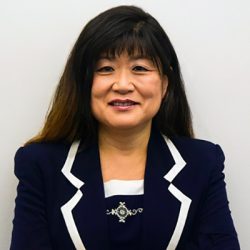
| For Immediate Release: Date: February 7, 2024 | Contact: Rahat N. Babar, Deputy Executive Director for Policy |
WASHINGTON – Today, President Joe Biden nominated Judge Sanket J. Bulsara to the U.S. District Court for the Eastern District of New York.
“NAPABA congratulates Judge Sanket J. Bulsara on his nomination to the U.S. District Court for the Eastern District of New York. He is an experienced jurist and has served as a U.S. Magistrate Judge on the court since 2017,” said Anna Mercado Clark, President of NAPABA. “A native New Yorker and active member of the Asian American Bar Association of New York, Judge Bulsara, who was – at the time that he was appointed a U.S. Magistrate Judge – the first South Asian American to serve as a judge within the Second Circuit, is exceptionally well qualified. We are proud to support his nomination.”
“The South Asian population is one of the fastest growing in New York City, representing four percent of the population,” said Priya Purandare, Executive Director of NAPABA. “President Biden’s nomination and Senator Schumer and Gillibrand’s recommendation of Judge Bulsara recognize the importance of having a judiciary representative of the community.”
Judge Sanket J. Bulsara has been a United States Magistrate Judge for the Eastern District of New York since 2017. From January 2017 to May 2017, Judge Bulsara served as the Acting General Counsel of the U.S. Securities and Exchange Commission, where he had been the Deputy General Counsel for Appellate Litigation, Adjudication, and Enforcement since 2015. Prior to that, Judge Bulsara worked at Wilmer Cutler Pickering Hale and Dorr L.L.P. as an associate from 2005 to 2008, a counsel from 2009 to 2011, and a partner from 2012 to 2015. For six months between 2007 and 2008, he served as a Special Assistant District Attorney at the Kings County (Brooklyn) District Attorney’s Office, and he worked as an associate at Munger, Tolles & Olson L.L.P. in Los Angeles, California from 2003 to 2004. Judge Bulsara served as a law clerk for Judge John G. Koeltl on the U.S. District Court for the Southern District of New York from 2002 to 2003. He received his J.D. from Harvard Law School, cum laude, in 2002 and his A.B., magna cum laude, from Harvard College in 1998.
NAPABA thanks President Biden for nominating Judge Bulsara and Senators Schumer and Gillibrand for supporting his nomination.
###
The National Asian Pacific American Bar Association (NAPABA) represents the interests of over 60,000 Asian Pacific American (APA) legal professionals and nearly 90 national, state, and local APA bar associations. NAPABA is a leader in addressing civil rights issues confronting Asian American, Native Hawaiian, and Pacific Islander communities. Through its national network, NAPABA provides a strong voice for increased diversity of the federal and state judiciaries, advocates for equal opportunity in the workplace, works to eliminate hate crimes and anti-immigrant sentiment, and promotes the professional development of people of all backgrounds in the legal profession.






